- Home
- Perry Rhodan
The Ghosts of Gol Page 2
The Ghosts of Gol Read online
Page 2
"Any other observations?"
"No, sir. We've been unable to ascertain the cause of these disturbances."
"All right. Thank you for your report I'm signing off." He whirled around again. "Where is Tanaka?"
"He's coming." Rhodan glanced at Khrest and Thora, who were frightened stiff in their seats. Khrest was still staring with wide open, unbelieving eyes at the test stand where the metal capsule had radiated away its substance in a blue-white light, and Thora remained motionless, covering her face with both hands.
The hatch rolled open and Tanaka Seiko entered the room. He was one of Rhodan's most capable mutants. Radioactivity had affected unused parts of his brain in such a manner that he could receive electromagnetic waves and understand their meaning if they were modulated as, for instance, radio waves.
During the last few days it had become apparent that Tanaka's sensitive brain did not only respond to electromagnetic influences but also reacted to others of a higher order. Tanaka was stumbling as he came in. It seemed to take all his strength not to fall down. His face was so pale that it made the red scar on his cheek stand out. "Did you understand it, Tanaka?" asked Rhodan sternly.
The Japanese nodded. Rhodan pointed to a chair. "Sit down and tell us about it."
"Somebody said, 'You shall come now,'" Tanaka stammered. "Then there was some talk about a warning. Yes, I understood. It said: 'Remember the warning! Continue your search where the disturbance occurs.'" He paused and took a deep breath to overcome his exhaustion. Then he went on. "Then it said: 'Do not come without the higher knowledge! Nobody will help you, only the mountain will pulsate for you.'"
Rhodan nodded and routinely rewound the tape on which he had recorded Tanaka's interpretation. He listened for a second time to what the Japanese had said and got up. "'You shall come now,'" he murmured. "Remember the warning. Continue your search where the disturbance occurs. Do not come without the higher knowledge. Nobody will help you, only the mountain will pulsate for you." It was a psychic message which was imbedded in the metal cartridge, retrieved from the past by Rhodan and emitted at the exact moment the great unknown being had chosen.
I have to be careful not to lose my sanity, Rhodan reflected bitterly. He could hear Tanaka panting beside him. The sound took his mind off his own thoughts. He looked at Bell, who was still waiting at the telecom. Bell reached hesitantly for the mike. Rhodan nodded and took the mike over. "Commander Rhodan speaking. Attention, everybody! Ship will take off in thirty minutes. All battle stations and range finders to be manned five minutes before start. All section chiefs to report when ready for action.
"Major Deringhouse and Major Nyssen, have both your spacefighter squadrons ready for launching at the airlocks."
"State of alarm number one as of now!" The thirty minutes seemed to fly by. Khrest made a few attempts to speak but Rhodan averted him and asked for patience. Rhodan himself determined the course. The computer contained the orbit and velocity data of all planets of the Vega system in its memory bank. Rhodan elicited the information and received, in symbols of Arkonide mathematics, an equation for the course which was prepared for feeding into the automatic pilot.
Rhodan set the automatic pilot for ready start and took the all clear calls coming in one after another from all sections of the mighty ship. Major Deringhouse was the last to come through with his report. He rattled it off and then inquired in a more personal tone, "May I ask what's up?"
Fourteen!" answered Rhodan curtly. "We want to take a look at it."
"Fourteen!" snapped Deringhouse. "That monster?"
Rhodan nodded. "That monster."
Minutes later, the Stardust II lifted off. The huge spherical body with a diameter of twenty-five hundred feet threw a black shadow across the terrain, causing an unscheduled solar eclipse for a small area of Ferrol's surface.
This spectacle did not last very long. Roaring and trailing a glowing plume of ionized matter, the ship escaped into space. It was almost, incredible for an observer contemplating the sight to see how quickly the tremendous ball shrank to a black point and vanished completely in one breath of air.
In the Command Center of the ship Rhodan checked the light controls of the automatic pilot. They were blinking in the prescribed sequence and the right colors.
The course was steady. No transition had been planned. The flight would take one hundred ten minutes.
Rhodan remembered that Khrest wanted to say something. He looked questioningly at the old Arkonide.
"Didn't you have a...?"
Khrest laughingly interrupted him. It was the first time in weeks that he really laughed.
"Oh yes, Perry, I had a request. I meant to tell you that we've thought the matter over and want to accompany you in any case."
Rhodan looked startled.
"Right. Earlier, you hadn't made up your mind, I remember now."
Thora got up. Her face twitched in a mixture of anger and gaiety.
"I'd just like to know what would have become of us ifwe had decided differently?" she asked bitingly.
"What luck that you didn't!" replied Rhodan with a smile.
2/ PERILS OF GOL
THE FOURTEENTH PLANET of Vega was an ammonia-methane giant of the Jupiter type. It was in this vicinity that Rhodan in theGood Hope had rescued Chaktor from the drifting wreckage of the Ferronian defense feet which had been destroyed by the invading Topides.
This gigantic planet had three times the diameter of Jupiter, a staggering 260,000 miles, and, in contrast to Jupiter, an enormous density. According to the information given by Ferronian astronomy the gravitation on the surface amounted to more than nine hundred G's, which meant that a man there would have to carry more than nine hundred times his weight.
Rhodan, however, believed that this figure was too high and had it checked as the Stardust II approached the planet. Nine hundred G's would mean that single actions of the eight auxiliary ships, or even space-fighters, would be impossible above the methane-ammonia world. The auxiliary ships had the capacity of neutralizing five hundred G's. If the gravitation exceeded that they had to utilize the help of their drive engines, which in turn reduced their mobility.
The planet was a monster in every respect. Long distance measurements determined that the height of the atmosphere was almost twelve thousand miles above the core itself, which could be either solid or liquid. The pressure on the surface, therefore, far exceeded anything human high pressure technology had invented or produced.
As Stardust II approached the planet within one astronomical unit, Rhodan received the result of the gravitation measurements. The gravitational force prevailing on the surface was nine hundred-sixteen G's, nine hundred sixteen times as much as the weight on Earth.
Thereupon Rhodan ordered his Guppies, the eight auxiliary ships, to return to Ferrol and to wait there for further developments. Then he called his senior officers and the two Arkonides for a briefing.
Anyone who believed that Rhodan would permit a discussion was disappointed. Rhodan stood in front of his officers and announced his decisions.
"The venture is very dangerous," he said with a harsh voice. "Let's not have any illusions about that. We're running the risk of losing our ship."
"On the other hand we must keep in mind what has so far been done in this undertaking. We're dealing with somebody who will entrust his secret only to those he considers worthy to receive it."
"The probability that a serious mishap will occur is, in my opinion, very slight. One doesn't test the courage of a candidate with the intention of destroying him.
"But we must take every precaution. The unknown informed us that we must rely on our own strength. I have no doubt that our strength will prove superior to anything at all we might encounter on this planet."
He paused and waited for objections. There were none.
"Certain technical details will have to be considered," he continued. "We need vehicles in which we can operate adequately on the surface. These vehicles have t
o sustain a pressure of fifty thousand atmospheres and must be neutralized against the gravitation of nine hundred sixteen G's. Keep in mind that the safety of the personnel depends on the care with which these precautionary measures are taken."
"We have a few hours to prepare for these requirements. Then we'll be beyond the point of no return. Thank you!"
Everybody was dismissed with the exception of Khrest and Thora. Bell, whose post was in the Command Center, also remained.
"Do you know what you are doing?" asked Khrest.
"He never thinks before he acts," Thora broke in. "He simply does it and most of the time he's lucky."
"I've considered everything," Rhodan answered Khrest. "I'm risking the ship to search for the secret of eternal life. Don't you agree that it's worth more than this ship?"
"True enough," admitted Khrest. "But what good will the secret do us if we get stuck on this monster?"
"Stuck? One of our auxiliary ships can rescue us, if..."
"Rescue us? Against a gravitation of nine hundred sixteen G's?"
Well, it'll be a difficult manoeuvre. But those ships can be steered remotely from a far distance so that not even one of the robots has to be exposed to this gravitation. We, however..."
"We, however," criticized Thora, "have five or six safe vehicles at best for three hundred men. There"ll be room for twenty or thirty more in each vehicle. What about the others?"
"The others won't have to worry anymore about being picked up. Isn't that what you wanted to hear?" answered Rhodan dryly.
Thora made no further reply. Rhodan continued to exasperate her. "Besides, you assured me only an hour ago that you wanted to share in this expedition. Does this mean that you've changed your mind again in the meantime?"
"No, you stubborn mule!" snarled Thora angrily and marched out.
"We ought to call it Gol," said Bell pensively.
"What?
"That," responded Bell, pointing his open hand toward the visiscreen across which storms in the uppermost layers of the atmosphere were raging.
"Isn't Gol an abominable ogre in some old legend?"
"Could be," answered Rhodan, lost in thought.
Stardust II hovered eleven thousand miles above the actual surface of the planet according to the microwave probe. The ship approached on the day-side of the planet and the temperature in the immediate neighborhood of the Stardust rose to 120°F under the influence of the direct radiation from the blue-white giant star Vega.
The rotation period of the planet was calculated to be close to fourteen hours. This meant that the fast rotating surface created uninterrupted storms in the border strata next to it—storms under a pressure of more than forty thousand atmospheres!
Rhodan tried to imagine the sort of being who would select such a world to stage his trial. It was beyond his comprehension.
"Nine thousand miles," a steady voice reported on the telecom.
Following the custom on Earth, on board the Stardust and all other ships, distances were stated in miles and feet unless they were on the order of interstellar dimensions.
Still nine-thousand above the surface. "Wind velocity thirteen hundred feet per second," another voice announced. Bell started to laugh. But he did not sound very cheerful. "Wind velocities greater than the speed of sound," he mumbled. "What is that going to do to us?" Rhodan answered seriously: "The velocity of sound depends on the substance and the density through which it travels. Here we have a mixture of ammonia and methane and the density far exceeds the atmosphere on Earth. Therefore, the speed of sound is much greater than in air under normal pressure."
Bell started to reply but the warning buzz of an instrument interrupted him. The red warning light of the structure sensor glared like the eye of a witch. Rhodan studied the confusing pattern of impulses on the oscillograph screen of the sensor.
Normally, the oscillograph reacted to a structure change in space with a green point of light formed on the screen. The location of the point on the grid of the co-ordinates indicated where in space the change occurred.
However, the picture Rhodan saw at present was a wobbly, chaotic pattern originating at a central point
and spreading over the whole screen. Rhodan was unable to make any sense out of the pattern. He knew that the structure sensor recorded its images on a tape to preserve them. For that reason he took time to observe the peculiar play of lines until it suddenly disappeared again.
"The attached chronometer registered that the sensor had been activated for sixteen seconds." Rhodan had a short walk with Tanaka Seiko over the telecom but Tanaka had not noticed anything. If these playful structure changes in space had any significance at all it was hidden in gravitational shocks to which Tanaka was not sensitive. The game had become a shade more difficult. "Seven thousand," said the navigator. Rhodan removed the tape produced by the structure sensor and projected it. He magnified the picture ten times and studied it once more without arriving at any conclusions. However, he determined the co-ordinates of the point of origin and changed the course in that direction. In this manner they crossed the night and day border line and now moved through the swirling, stormy darkness. The temperature outside the ship's hull had sunk to 200° absolute or -260°F.
"Six thousand miles!"
At the same moment the structure sensor reacted once again. It did so in the same manner as the first time: it drew green lines in a senseless pattern all over the screen, toying for sixteen seconds with Rhodan's reasoning theories and then fading away.
Only one thing was different: the central point of the line pattern was at the point of origin of the co-ordinates themselves. The Stardust was located exactly vertically above the emitter and there could be no doubt that the source was situated on the surface of the giant planet.
Rhodan compared the two visitapes with each other. There was no time to evaluate the comparison but one thing that seemed to be certain was that the two patterns did not differ except for the location of the central point.
This indicated that the space structure change which was taking place below the Stardust was intentional and not an accidental, statistical occurrence. This was also suggested by the duration of the disturbance which lasted sixteen seconds in both cases.
The navigator called.
"Below us is an obscure area, sir. Appears to be a mountain. Differences in height up to sixty thousand feet. The terrain is most unsuitable for a landing."
"Can you make out a more favorable place?"
"Yes, sir. About one hundred twenty miles from here is a mirror-like surface, if I can trust my instruments."
"Correct our course. But deviate as little as possible from our present direction."
The navigator determined the co-ordinates of the new landing area and transmitted the program data for the course correction to the automatic pilot. The reception of this information was signaled in the Command Center and Rhodan, who was flying the Stardust only semi-automatically because of the difficult landing procedure, set the new course.
At the altitude of six hundred miles it became necessary to increase the power of the generators for the protective screen to the highest level. The storm which whipped the mass of ammonia and methane with unbelievable velocity began to interfere with the ship's course. The huge sphere of the Stardust was pushed about and only the highest energy level of the protective screen was sufficient to prevent the storm from unbalancing the ship.
A strange phenomenon was now observed on the visiscreen. Methane, one of the two main ingredients of the planet's atmosphere, becomes easily ionized. The ionized molecules of the gas bombarded the protective screen and enveloped the Stardust in a glowing halo which trailed behind in immense spirals.
It was impossible to determine the nature of the atmosphere. The enormous pressure caused the ammonia and methane molecules to form a dense mixture which normally would result in a liquid. But by definition the liquid state requires a surface formed by the fluid itself. The atmosphere lacked such a sur
face and Rhodan had to conclude that they had found a region here of super-high pressures, and low temperatures still unknown to Terrestrial thermodynamics due to the absence of opportunities for such experiments on Earth.
In the meantime the structure sensor had responded three more times. The observation screen showed the same pattern, the reception period again lasted sixteen seconds and by now Rhodan had ascertained that the intervals between the transmissions were always the same.
Transmissions!
Somebody was present in the neighborhood of the mountain the peak of which, so the navigator claimed, was twelve miles above the normal level and was sending the same space-warping effects which occurred at the transition of a spaceship. They were unwanted side effects which could not be controlled by mankind.
We have to find a different name for these other beings, Rhodan thought; after all, one could not call all those who were intelligent, mankind.
The transmissions were sent by somebody who was also able to modulate their effects as was shown by the pattern on the oscillograph screen. Rhodan began to understand why Khrest and Thora wanted to abandon their original plan. Some power was at work here which was far superior to the Arkonides.
"Altitude three hundred sixty miles!"
"Outside temperature eighty-five degrees absolute."
"The day has begun, sir, at least according to our calculations. Can you recognize anything?"
Rhodan chided, "Do you expect radiant sunshine at the bottom of an ammonia ocean twelve miles deep?"
More reports came in. They were rife with the anxiety which was gripping the men. There was hardly anyone who was immune to the influence which this utterly strange world exerted. It did not help matters that most of the crew had no direct view of the outside. The navigators and the men at the battle stations relied on the range finder screens, which depicted solid objects as monochromatic points, lines or planes. Nobody knew what it really looked like outside.
Rhodan could have consoled them. On the screens of the visual monitoring system there was merely a black-grey spread without contours or details.

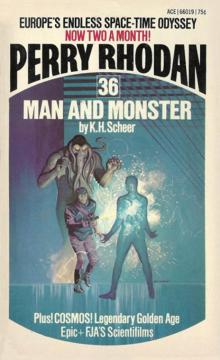 Man and Monster
Man and Monster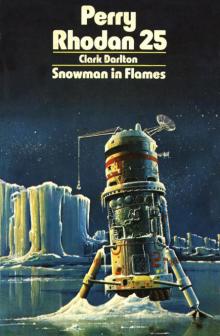 Snowman in Flames
Snowman in Flames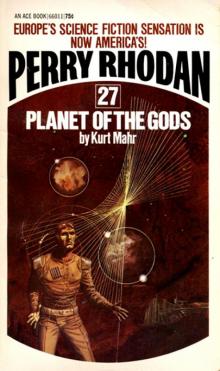 Planet of the Gods
Planet of the Gods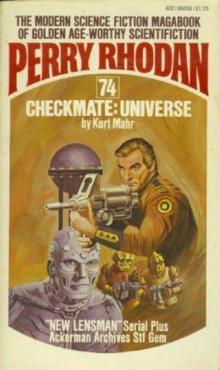 Checkmate Universe
Checkmate Universe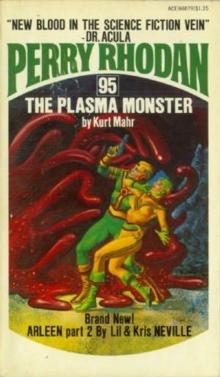 The Plasma Monster
The Plasma Monster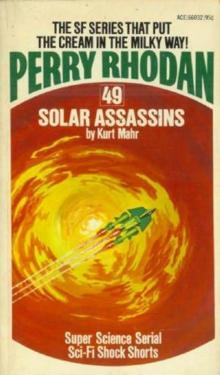 Solar Assassins
Solar Assassins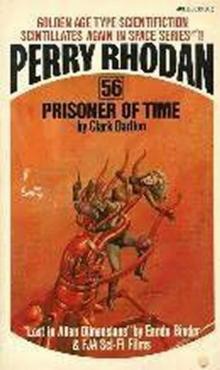 Prisoner of Time
Prisoner of Time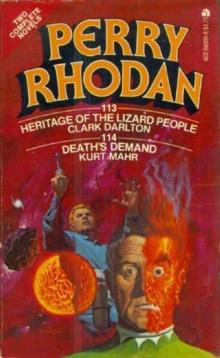 Death's Demand
Death's Demand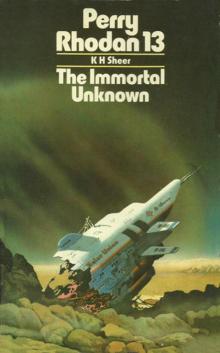 The Immortal Unknown
The Immortal Unknown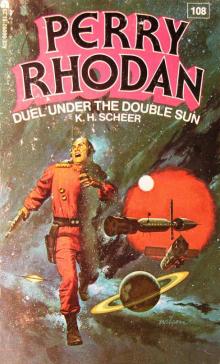 Duel Under the Double Sun
Duel Under the Double Sun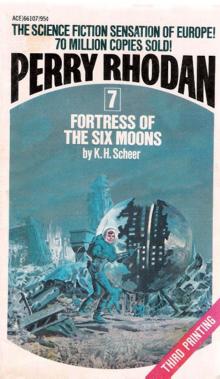 Fortress of the Six Moons
Fortress of the Six Moons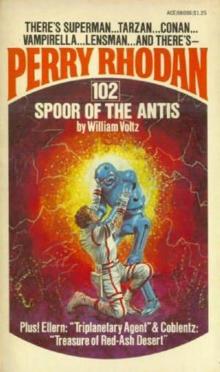 Spoor of the Antis
Spoor of the Antis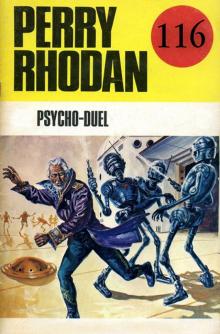 The Psycho-Duel
The Psycho-Duel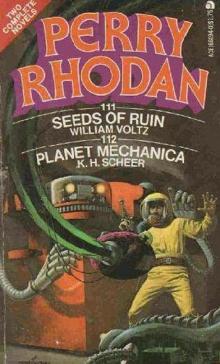 Planet Mechanica
Planet Mechanica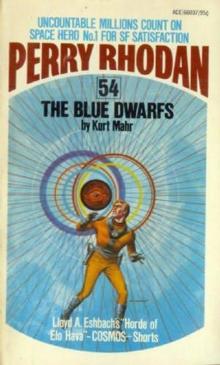 The Blue Dwarfs
The Blue Dwarfs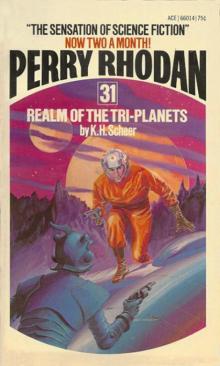 Realm of the Tri-Planets
Realm of the Tri-Planets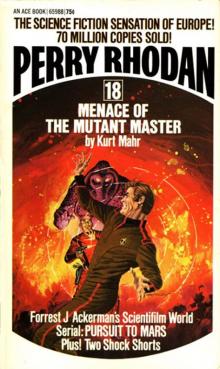 Menace of the Mutant Master
Menace of the Mutant Master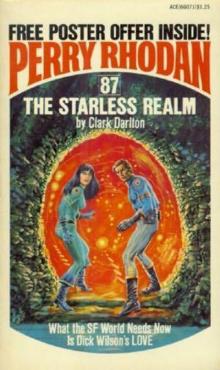 The Starless Realm
The Starless Realm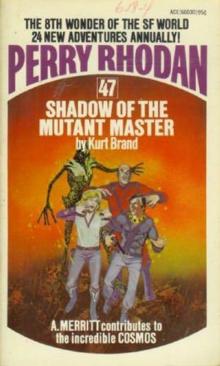 Shadow of the Mutant Master
Shadow of the Mutant Master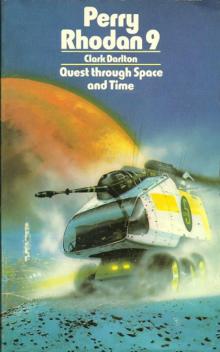 Quest Through Space And Time
Quest Through Space And Time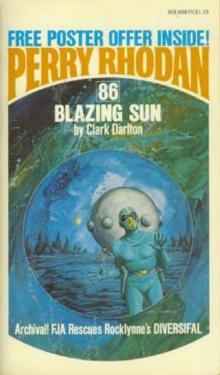 Blazing Sun
Blazing Sun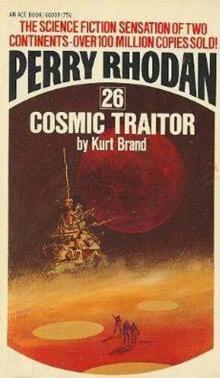 Cosmic Traitor
Cosmic Traitor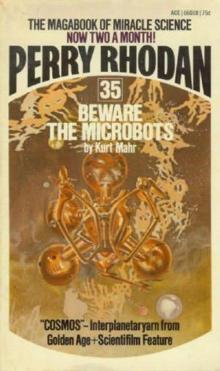 Beware the Microbots
Beware the Microbots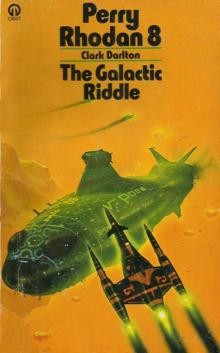 The Galactic Riddle
The Galactic Riddle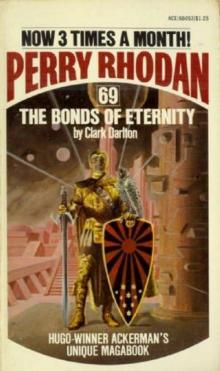 The Bonds of Eternity
The Bonds of Eternity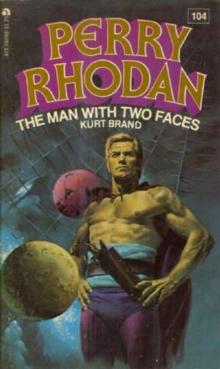 The Man With Two Faces
The Man With Two Faces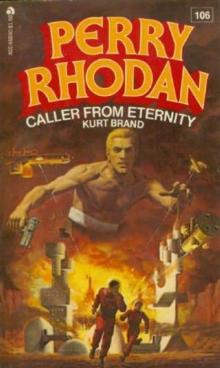 Caller from Eternity
Caller from Eternity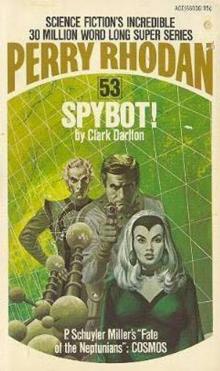 Spybot!
Spybot!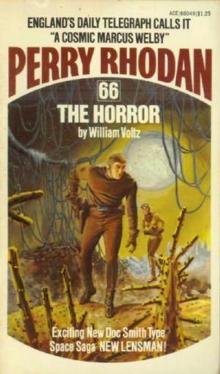 The Horror
The Horror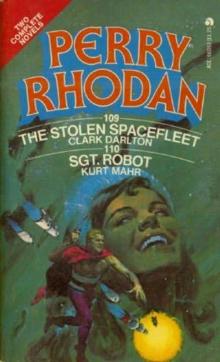 The Stolen Spacefleet
The Stolen Spacefleet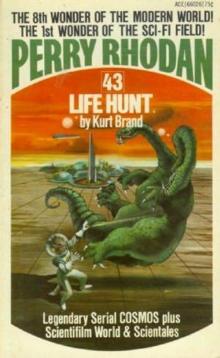 Life Hunt
Life Hunt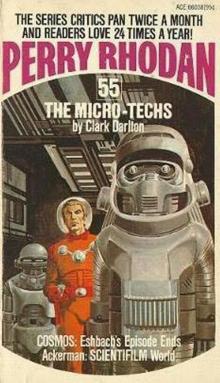 The Micro-Techs
The Micro-Techs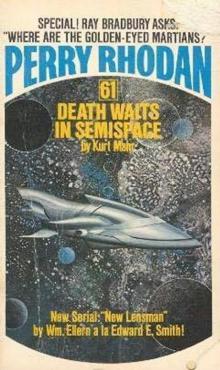 Death Waits in Semispace
Death Waits in Semispace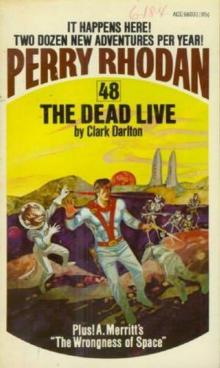 The Dead Live
The Dead Live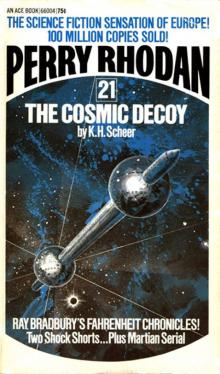 The Cosmic Decoy
The Cosmic Decoy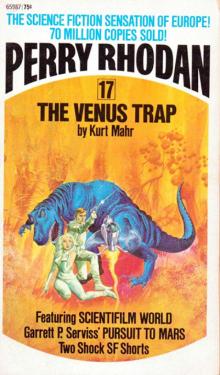 The Venus Trap
The Venus Trap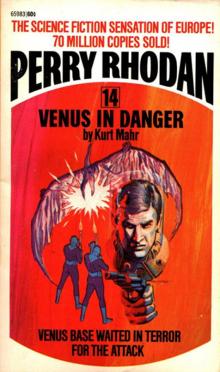 Venus in Danger
Venus in Danger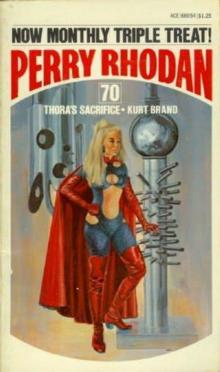 Thora's Sacrifice
Thora's Sacrifice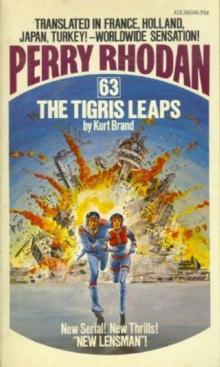 The Tigris Leaps
The Tigris Leaps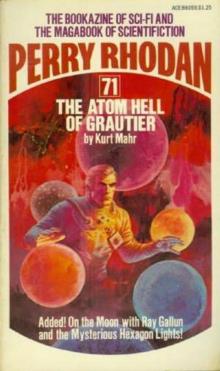 The Atom Hell of Grautier
The Atom Hell of Grautier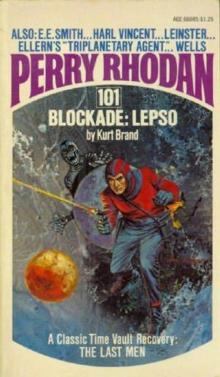 Blockade: Lepso
Blockade: Lepso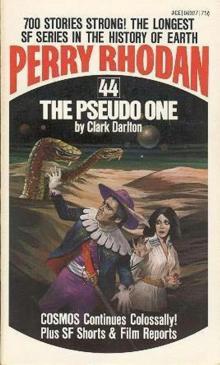 The Pseudo One
The Pseudo One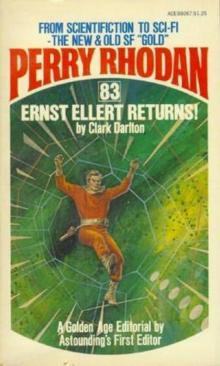 Ernst Ellert Returns
Ernst Ellert Returns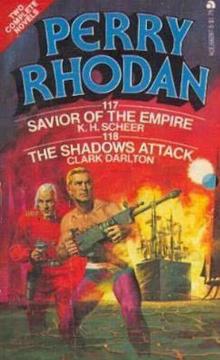 Savior Of The Empire
Savior Of The Empire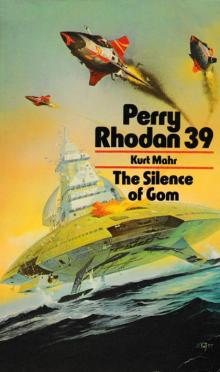 The Silence of Gom
The Silence of Gom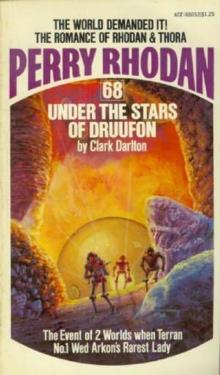 Under the Stars of Druufon
Under the Stars of Druufon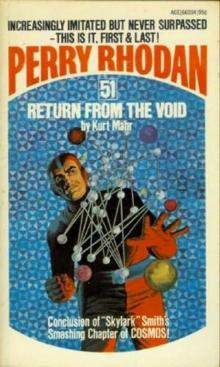 Return from The Void
Return from The Void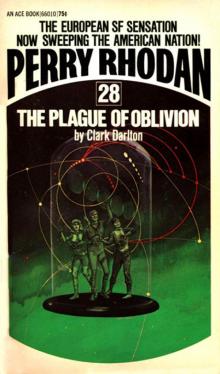 The Plague of Oblivion
The Plague of Oblivion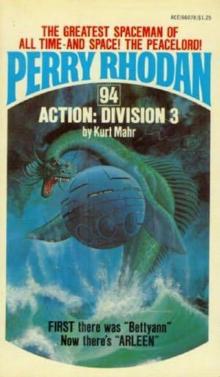 Action Division Three
Action Division Three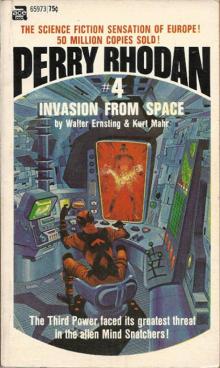 Invasion From Space
Invasion From Space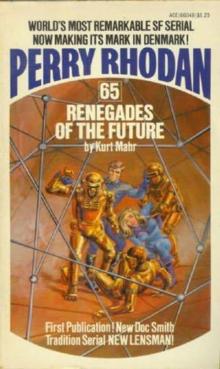 Renegades of the Future
Renegades of the Future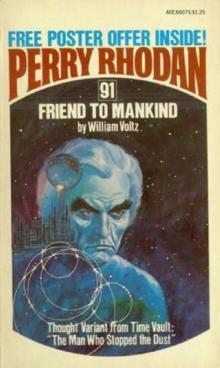 Friend to Mankind
Friend to Mankind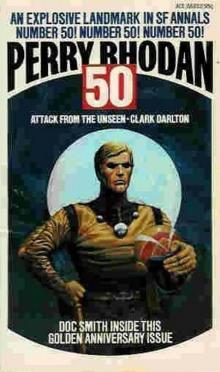 Attack from the Unseen
Attack from the Unseen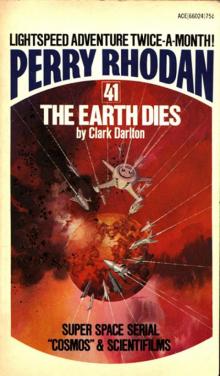 The Earth Dies
The Earth Dies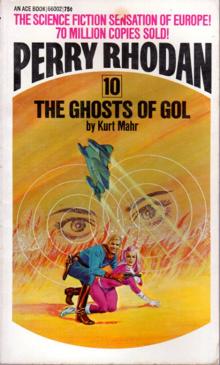 The Ghosts of Gol
The Ghosts of Gol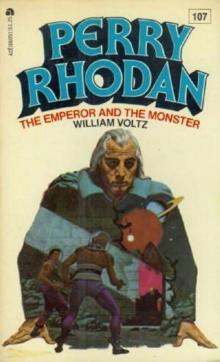 The Emperor and the Monster
The Emperor and the Monster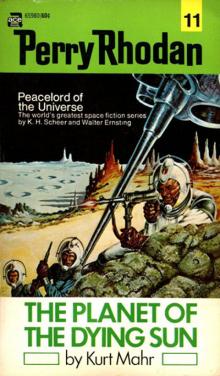 The Planet of the Dying Sun
The Planet of the Dying Sun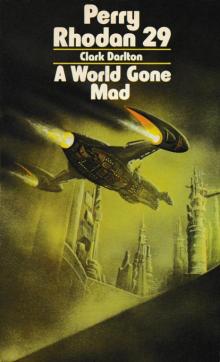 A World Gone Mad
A World Gone Mad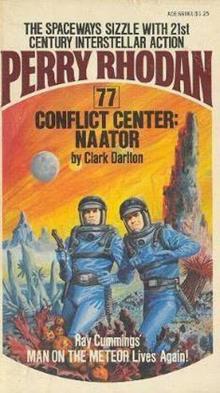 Conflict Center Naator
Conflict Center Naator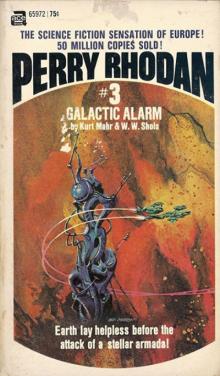 Galactic Alarm
Galactic Alarm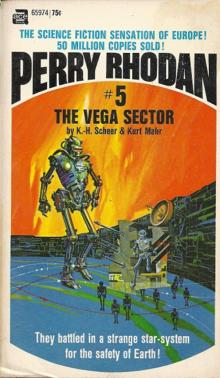 The Vega Sector
The Vega Sector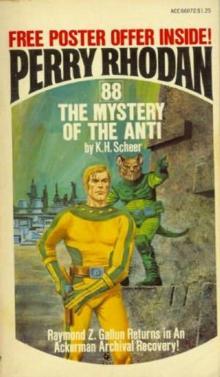 Mystery of the Anti
Mystery of the Anti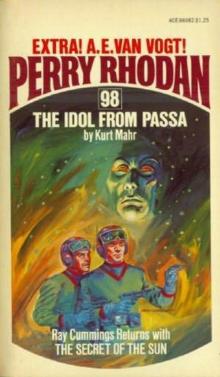 The Idol from Passa
The Idol from Passa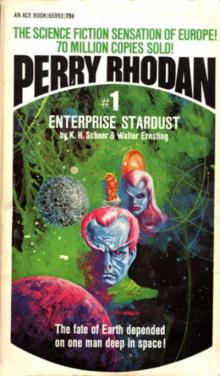 Enterprise Stardust
Enterprise Stardust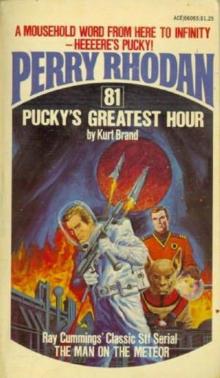 Pucky's Grestest Hour
Pucky's Grestest Hour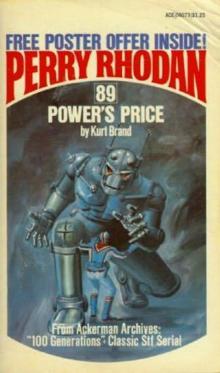 Power's Price
Power's Price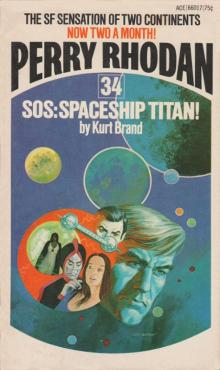 SOS Spaceship Titan
SOS Spaceship Titan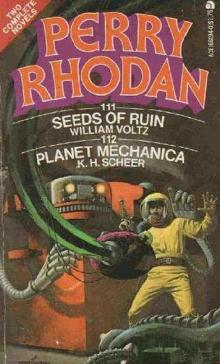 Seeds of Ruin
Seeds of Ruin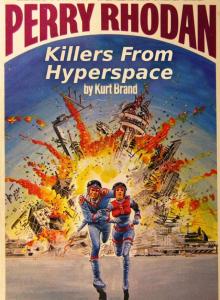 Killers From Hyperspace
Killers From Hyperspace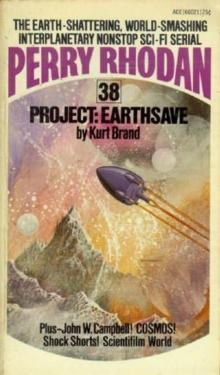 Project Earthsave
Project Earthsave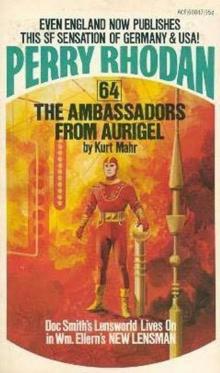 The Ambassadors from Aurigel
The Ambassadors from Aurigel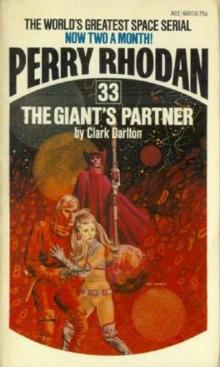 The Giant's Partner
The Giant's Partner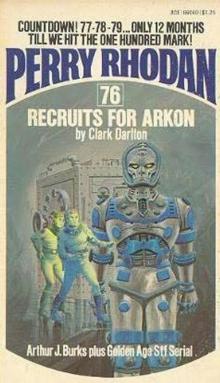 Recruits for Arkon
Recruits for Arkon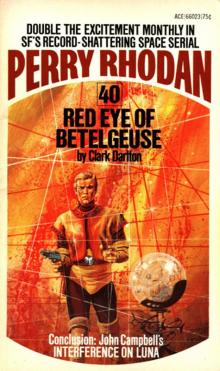 Red Eye of Betelguese
Red Eye of Betelguese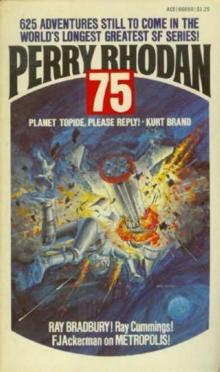 Planet Topide Please Reply
Planet Topide Please Reply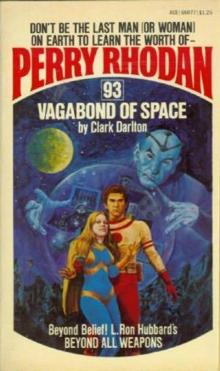 Vagabond of Space
Vagabond of Space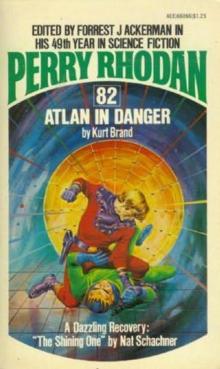 Atlan in Danger
Atlan in Danger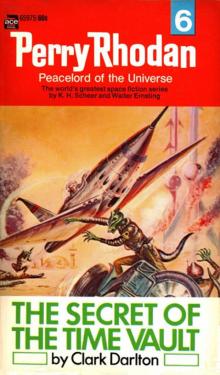 The Secret of the Time Vault
The Secret of the Time Vault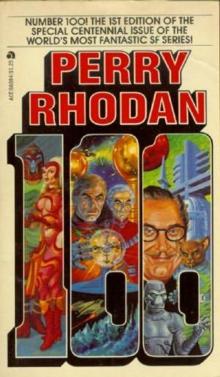 Desert of Death's Domain
Desert of Death's Domain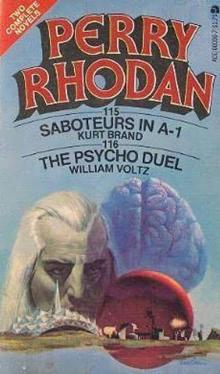 Saboteurs in A-1
Saboteurs in A-1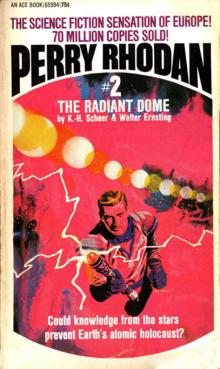 The Radiant Dome
The Radiant Dome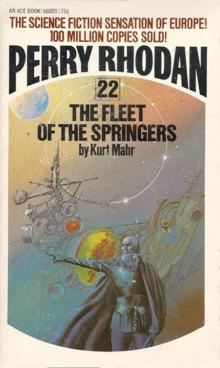 The Fleet of the Springers
The Fleet of the Springers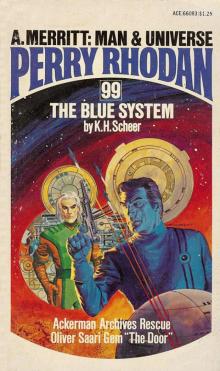 The Blue System
The Blue System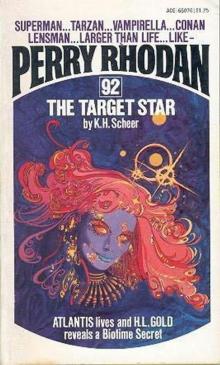 The Target Star
The Target Star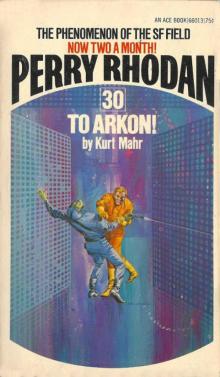 To Arkon!
To Arkon!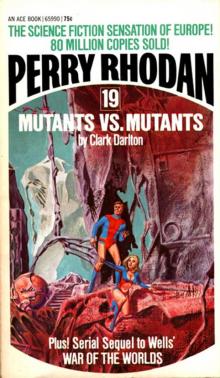 Mutants Vs Mutants
Mutants Vs Mutants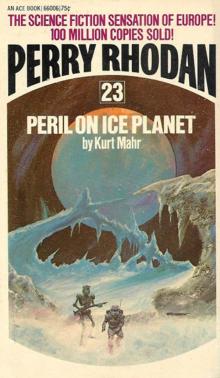 Peril on Ice Planet
Peril on Ice Planet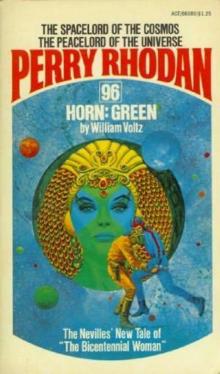 Horn: Green
Horn: Green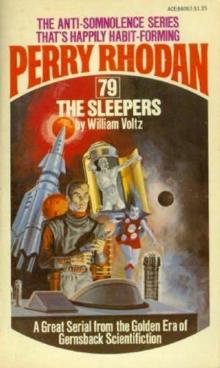 The Sleepers
The Sleepers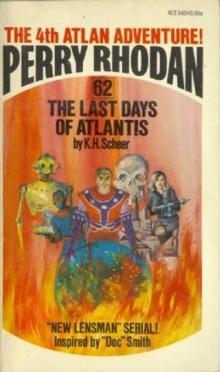 The Last Days of Atlantis
The Last Days of Atlantis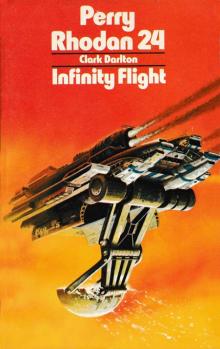 Infinity Flight
Infinity Flight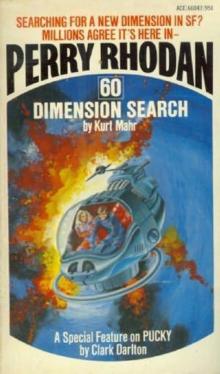 Dimension Search
Dimension Search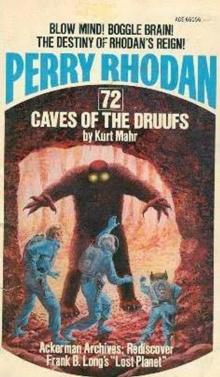 Caves of the Druufs
Caves of the Druufs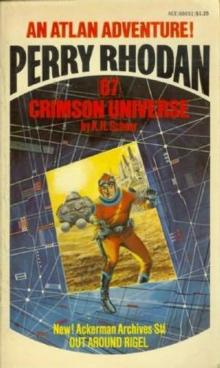 Crimson Universe
Crimson Universe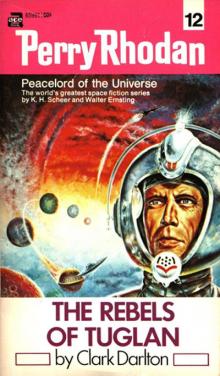 The Rebels of Tuglan
The Rebels of Tuglan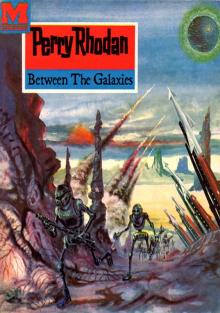 Between The Galaxies
Between The Galaxies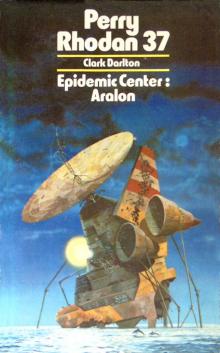 Epidemic Center Aralon
Epidemic Center Aralon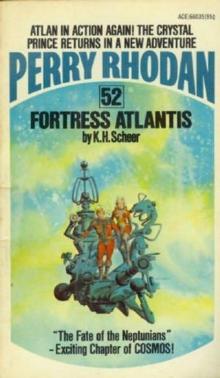 Fortress Atlantis
Fortress Atlantis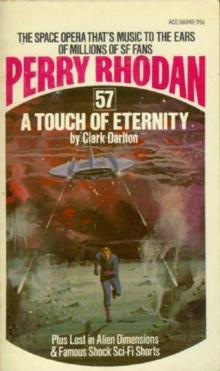 A Touch of Eternity
A Touch of Eternity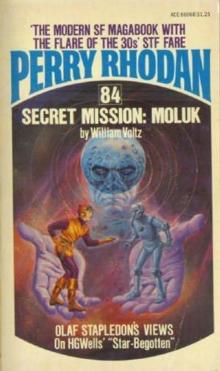 Secret Mission Moluk
Secret Mission Moluk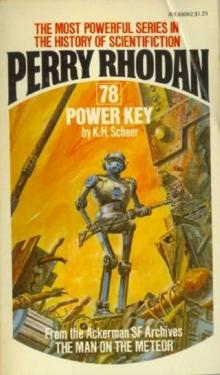 Power Key
Power Key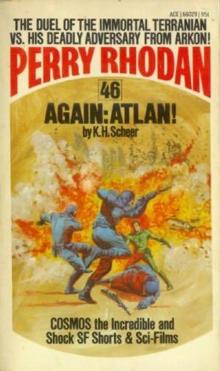 Again Atlan
Again Atlan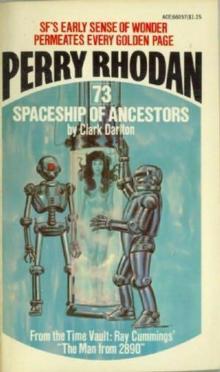 Spaceship of Ancestors
Spaceship of Ancestors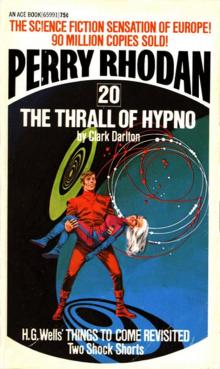 The Thrall of Hypno
The Thrall of Hypno